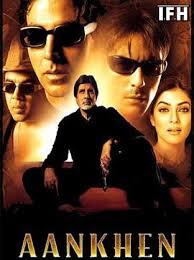Competition Commission of India vide its recent order dated 31.10.2017 has penalized the various trade unions and associations of junior artists, cameramen, dancers, art directors etc. of the Bollywood Film Industry for limiting and restricting the supplies of the junior artist etc. to the film directors in terms and an memorandum of understanding. The present order is the latest in a series of orders against trade unions/associations wherein the Commission has reiterated that the right to form a trade unions/association, though constitutionally protected, is subject to the provisions of the Competition Act, 2002 if such conduct results in limiting or controlling production, supply, markets etc.
The Competition Commission of India (CCI) vide its recent order dated 31.10.2017 has directed 25 trade unions and associations and their All India and Regional Confederations of the various categories of junior artists, cameramen, dancers, art directors etc. of the Bollywood Film Industry to “ cease and desist” from their existing practices of disrupting competition and fair-play in the market through their anti-competitive conducts, such as, suspension of work, boycott etc. of such film directors who engage junior artists etc. outside the said trade unions / associations.
The order is significant because it has reiterated that the trade unions and associations of these junior artists etc. cannot claim immunity from the provisions of the Competition Act, 2002 (“the Act”) simply because their trade unions etc. are registered under the relevant statute i.e. the Trade Unions Act, 1926 because, unlike, in the erstwhile Monopolies and Restrictive Trade Practice Act, 1969, there is no exemption to trade unions under the Act. The order establishes the importance of maintaining competition in the markets even in matters of the rights of the workmen and labour which are otherwise protected under the respective labour statutes.
Brief facts
Film and television content production require engagement of skilled professionals such as spot boys, junior artists, lightmen, cameramen, models, fighters, dancers, sound engineers/designers, art directors, artists etc. (collectively referred to as “craftsmen”). Initially, film producers directly engaged with the Craftsmen. With the passage of time, however, the Craftsmen have organized themselves into their respective federations, associations and trade unions.
The Informant, Mr. Vipul A. Shah who is an independent film producer and director has alleged that the federations/associations/ trade unions formed by these craftsmen do not allow producers to engage craftsmen who are not members of the respective associations and also boycott producers who appoint craftspersons outside of the associations.
Since the services of craftsmen are imperative for film and television producers, a Memorandum of Association (MOU) was executed on 01.10.2015 between the film and television content producers and the associations of the respective Craftsmen.
The MOU in addition to fixing the work shift, timings, wages, rates etc. also provided that film producers shall exclusively deal with only craftsmen who are members of the Opposite Party Federations/Associations and that the producers cannot engage craftsmen who are not part of the Opposite Party Federations/Associations.
It was alleged that the clauses of the MOU constitute an anti-competitive agreement within the provisions of Section 3(3) of the Act. On a prima facie contravention of the provisions of the Act, the DG was directed to investigate the allegations against the OP Federations.
DG’s findings
The DG on investigation observed that the MoU as well as conduct of the OPs was in violation of Section 3 (3) (a), 3 (3) (b) and 3 (3) (c) read with Section 3 (1) of the Act.
CCI’s findings
Issue 1
The preliminary issue which was decided by the CCI was whether the provisions of the Act are ipso facto applicable to the Opposite Parties, who are registered trade unions under the Trade Unions Act, 1926. It was argued that Section 3 of the Act (which deals with anti-competitive agreements) do not cover coercive actions taken by non-players, labour unions or worker unions.
Findings
The CCI on perusal of the provisions of the Trade Unions Act, 1926 observed that immunity is granted only against proceedings relating to certain limited actions and under specified statutes. The Act does not state that it will not apply to any trade union or other association of workmen or employees formed for their own reasonable protection. The immunity to trade unions provided for under Section 18 of the Act available only to proceedings in a civil court and is inapplicable to the proceedings before the CCI which is only an expert body.
The CCI further observed that, although trade unions are permitted to undertake activities which protect and secure the rights of its members, such activities should not be intended to restrain competition or harm consumers, or be used for facilitating collusion between competitors. When these trade unions transgress their legal contours and facilitate collusive or collective decision making, with the intention of limiting or controlling the production, distribution, sale or price of or trade in goods or provision of services by its members, it amounts to violation of the provisions of the Act. Therefore, if the impugned conduct of a trade union falls foul of the Act, the same needs to be examined under the relevant provisions thereof. Competition law is not an impediment to appropriate trade union activities and members of such unions should be fully aware of the types of conduct such law proscribes when carrying out the union’s programs and activities.
Issue 2
The second issue raised by the OPs were that since the OP associations were not enterprises as defined under the Act, Section 3 will not be applicable.
Findings
The CCI relied on the decision of the Supreme Court in Competition Commission of India v. Coordination Committee of Artists and Technicians of W.B. Film and Television and Others[1] and held that an entity, regardless of its form is an ‘enterprise’ if it engages in an economic activity. It was also clarified that where the members of a trade union take decision relating to production or distribution or exhibition of films on behalf of the members who are engaged in the similar or identical business of production, distribution or exhibition of the films, the decision of these associations reflected collective intent of the members. In such circumstances, the actions of the trade union can be examined under the provisions of the Act.
In the present case, the CCI observed that the Craftsmen offer their respective services to the movie/film industry in return for a certain amount of remuneration. Since they assume financial risks pursuant to the services that they offer, they are engaged in an economic activity and can therefore be considered as an enterprise. It was also held that even if the OPs are not associations of enterprises, they will still be ‘associations of persons’ and will fall within the purview of Section 3 of the Act.
Issue 3
The third issue decided by the CCI was whether the MOU dated 01.10.2010 between the OP Associations are violative of Section 3(3) of the Act
Findings
The CCI noted that Clause 6 of the MOU restricted the freedom of the producers to acquire services of any non-member artist/ worker of their choice and also restrict persons who is not part of the Opposite Party Associations. The CCI also observed that the OP Association formed a Vigilance Committee under Clause 18 of the MOU who inspected shooting sites to ensure strict compliance with Clause 6 of the MOU.
It was held that such clauses deprive the opportunity of fair and free competition in the market and has the effect of limiting or controlling the market or provision of services.
The CCI relied on its decisions in Reliance Big Entertainment Limited[2] and UTV Software Communications Limited[3] to hold that imposition of member to member working conditions through memorandum of understanding or articles of association by an association reflects collective behavior of all its members and that the effect of such conditions is that non-members, who are competitors of the members of such associations, are prevented from competing effectively in the market. Such agreements in effect, limit the supply and distribution of films in the territories under the control of various associations and was therefore held to be violative of Section 3 (3) (b) of the Act.
With respect to the MOU clause providing for fixation of minimum wages and increase in wages on a yearly basis, it was observed that such clauses may have the effect of fixation of prices especially when coupled with Clause 6. However, wages and increment being also a condition of labour/term of employment, can fall within the realm of legitimate trade union activity when negotiated by a registered trade union and was therefore not in contravention of Section 3(1) read with Section 3(3) of the Act.
Penalty
On the issue of penalty, the CCI observed that the practice observed that the practice adopted in the MOU dated 01.10.2016 was in existence since 1966 and was contemplated as a mechanism to resolve disputes between the producers on one side and the craftsmen employed by them on the other. Considering the antiquity of the understanding and the fact that the OPs are ultimately associations/trade unions of daily-wage earners, the CCI refrained from imposing any monetary penalty and only issued a cease and desist order.
Comment
The present order is the latest of a series of orders by the CCI against trade associations/unions. The CCI in this case has reiterated its earlier position[4] that a decision taken by a trade association constitutes an agreement within the meaning of Section 3(3) of the Act.
As a result, trade unions which have earlier enjoyed an explicit immunity under the Monopolies and Restrictive Trade Practices Act, 1969 have increasingly found their decisions scrutinized by the CCI under the Competition Act, 2002. Resultantly, many associations inter alia the Chemists and Druggist Associations, Film Exhibitors Association, Cement Manufacturers’ Association etc. have been penalized by the CCI under Section 27 of the Act.
Therefore, it is advisable that trade association/union members sensitive themselves as to what conduct is caught by the provisions of the Act while undertaking the activities and functions of the association/union.
[1] (2017) 5 SCC 17
[2] Reliance Big Entertainment Limited etc. v. Karnataka Film Chamber of Commerce and Ors, Cases No. 25, 41, 45, 47, 48, 50, 58 and 69 of 2010
[3] UTV Software Communications Limited v. Motion Pictures Association, Delhi, Case No. 09 of 2011 decided on 08.05.2012
[4] Santuka Associates Pvt Ltd v. All India Chemists and Druggist Association, Case No. 20 of 2011 decided on 19.02.2013













